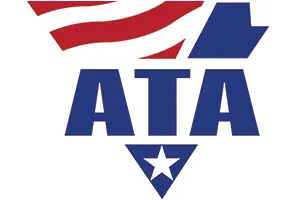Senior Reporter
FMCSA Proposes DataQs Appeal Process

[Stay on top of transportation news: Get TTNews in your inbox.]
Motor carriers mostly support a proposal that would allow them to appeal state agency Requests for Data Review to federal regulators when they believe a state decision of their crash review is “incomplete or incorrect.”
But in written comments carriers have expressed differing views on how the appeals process should work.
“Stakeholders from industry, CMV drivers, and the public have expressed concerns regarding the transparency and uniformity of addressing RDRs, and specifically RDR reconsiderations,” the Federal Motor Carrier Safety Administration wrote in its recent proposal.
“They have also noted concern that RDR reconsiderations are, in many instances, reviewed and decided by the same reviewer as the initial request. Users are calling on FMCSA to ensure an opportunity for an independent review, with consistently applied standards for data correction requests.”
The Request for Data Review (or DataQs) is an online system for motor carriers, commercial motor vehicle drivers and other interested parties to request and track a review of federal and state crashes and inspection data submitted to and stored by the FMCSA that the requester believes is not accurate.
Rishi Mehra of Trimble sheds light on the immense support that transportation technology can provide to enhance the efficiency of the physical supply chain. Tune in above or by going to RoadSigns.ttnews.com.
However, the agency’s appeal proposal would limit DataQs accepted for FMCSA appeal to requests that pertain to significant matters of legal interpretation or implementation of enforcement policies or regulations.
“Requests involving mere factual dispute between parties would not ordinarily be accepted for review through the FMCSA appeal process,” the agency proposal noted.
That limitation was a bone to pick for some industry stakeholders.
“As an association, we question why the FMCSA would not provide accident guidelines in the Request for Data Reviews appeal process,” the Truckload Carriers Association wrote in a comment. “There is a need for well-defined and standardized procedures for handling accidents during the appeal process for RDRs. Any absence of clear and comprehensive guidelines for managing accidents during this appeal process introduces ambiguity.”
American Trucking Associations generally agreed with FMCSA’s proposal.

“ATA believes that, as an initial step, an independent review process should only allow RDRs related to the interpretation or understanding of regulations, policy or standards,” ATA wrote. “While ATA members may seek broader program eligibility, ATA members have raised concerns that allowing all RDRs could create a myriad of submissions that lead to an ineffective independent review process.”
The Commercial Vehicle Safety Alliance applauded FMCSA for engaging with the commercial motor vehicle community to identify ways to improve the DataQ system. “However, CVSA has concerns with the federal review panel concept proposed by FMCSA,” the inspectors trade association wrote. “FMCSA is proposing to review only a portion of the RDRs submitted by motor carriers for consideration, focusing on those that require interpretation or clarification.”
CVSA added: “This proposal includes no solution for those RDRs that are being contested due to a disagreement between the state and the motor carrier regarding the actual facts of the scenario.”
In written comments, the Owner-Operator Independent Drivers Association said it supports the development and implementation of a federal appeals process for RDRs.
“However, FMCSA must specify more details about how such a process would be structured and administered to ensure its effectiveness,” OOIDA wrote. “We believe any appeals process must improve transparency, consistency and timely adjudication of DataQ challenges.”
Want more news? Listen to today's daily briefing above or go here for more info
“When launching the federal level appeal process, the Minnesota Trucking Association believes it should be limited to the interpretation of regulations, policy or standards,” the MTA wrote. “However, we believe there should be a process to potentially expand the program to areas beyond the interpretation of regulations, policy or standards based on industry feedback.”
The National Association of Small Trucking Companies urged FMCSA to provide an appeals process through the DataQ system that affords “an impartial, fair, timely review of all relevant cases, including factual disputes with any party or authority.”
“The DataQ review process constitutes an administrative branch proceeding; thus, to ensure due process, the agency should affirm aggrieved motor carriers’ right to judicial review of an adverse DataQ decision or denial of a requested review,” NASTC wrote.





